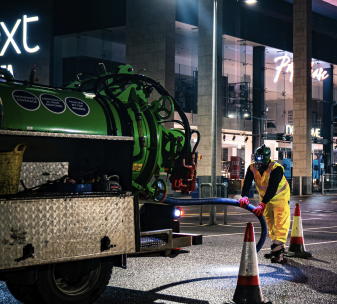
Moving house is a life changing time, full of excitement but overshadowed with feelings of stress and worry. When buying or selling a property we discover things about buildings and areas that we never knew before. The most minute issue can push your house sale or purchase back by months as mortgage companies, solicitors, estate agents and surveyors all squabble with each other through colourful E-mails. Unfortunately a quick house sale with no issues is one of the more rarer things to come by in life, even when on the surface everything appears fine, more often than not there is always something and with so many different regulations coming into play and changing it's no wonder. Which is why it is advisable, before entering into the game which is best described as a mix between extreme monopoly and cat and mouse, to look into any regulation which may effect your house sale.
By January 2020 New regulations regarding septic tanks and where they discharge to will come into full effect, meaning any one with a septic tank will have to be up to regulations by this date Though the final date isn't until January 2020 it is already effecting the housing market. with house sales grinding to a halt due non regulatory septic tanks.
What is the Law?
The new regulations coming into force at the beginning of next year effect both existing and new discharges. Firstly all effluent liquid must go to ground using a correctly designed and constructed drainage field or mini treatment plant. any and all discharges that do not go to one of these systems will need to be updated as per the new regulations. These include:
- Soak-aways used for rainwater
- Soak-away pit
- Soak-away crate system
- soakaway tunnel system
- Ezy Drain
- Ditches
- Dykes
- Streams, canals, rivers ect
- Surface water drains
If a septic tank discharges to any of the above this must be updated to continue with your house sale.
Selling & you have a septic tank?
If the property that you are selling has a septic tank, then the responsibility of ensuring that it is up to regulations is yours. Paperwork with regards to your septic tank; installation, changes, maintenance etc. should be kept for a minimum of 7 years, having these documents will make life a lot easier. Heres a list of things you need to know, guarantee or provide:
You must know where your septic tank discharges to.-
If you have no idea where your septic tank discharges to, you will need to find this out. this is the big one becuase the new law is to do with limiting pollution and if the septic tank is discharging into anywhere other than an established drainage field then this could fall your house sale and incur you some quite heft fines! There re ways for us to discover where it goes to though this is quite a difficult task, specialist equipment can trace p[pipework underground so this is the most preferable option, unfortunately if this does not work, you are not aware of where it goes and you have nos supporting documents this could mean a dig up to ascertain the discharge point.
You're septic Tank MUST discharge to an established drainage field
Under new regulations if a septic tank discharges to anywhere other than a fully functioning established drainage field this must be rectified. This included if your septic discharges to a soakaway which also deals with rain water. This is no longer allowed due to pollution. Your septic Tank MUST have its own drainage field to enable to effluent to go to ground correctly and not interact with any surface water.
You must know and be able to point out where your septic tank and drainage field is.
If you do not have the paperwork for your septic tank, have never had it looked at and have no idea where it is. Please don't panic you are with the majority of the nation. Luckily in most cases we can utilise specialist equipment to discover the location of your septic tank and drainage field.
Your septic tank and drainage field must be fit for purpose!
If you are not sure whether your septic tank is working because you've never thought about it then chances are high that it is probably working fine. Signs of a faulty septic tank would be quite evident such as; odours, backing up toilets and sinks, unknown water in the rear garden. if nothing like this is happening then we would assume that all is well.
A septic Tank now does need to be regularly maintained, to ensure its validity, so would be advisable to get it emptied and checked before entering into a house sale.
Buying a property which has a septic tank?
So your new home has a aseptic tank, what does this mean for you? first of all be aware! your solicitor will be fully aware of the regulations surrounding septic tanks as will any surveyor so will naturally be on the look out for anything that doesn't seem quite right.
- make sure that the current owners or the estate agent take you round and pinpoint where it is and where the drainage field is.
- Ensure that you speak to your solicitor about where the effluent discharges to and that you are all satisfied with the proof given.
- Inspect the property yourself, be aware of any unexplained puddles in the back garden, sewage odours or lack of facilities in the property which could be a sign of something more sinister.
- Make sure that you have all the information you require bout the septic tank. e.g. how much it holds. how to maintain it, what code it adheres to and when it was put in (if known)
If you have all this then you are good to go and enjoy your new home. Now you have a septic tank you are responsible for it's up keep. we advise yearly emptying and washing down. learn more about maintenance on your septic tank under the new regulations.

Talk to your local Metro Rod specialist
We are always happy to arrange a free site assessment and no obligation quotations for any work you might need. Alternatively, you can call our emergency hotline number on 0800 66 88 00
Get in touch Drainage Services